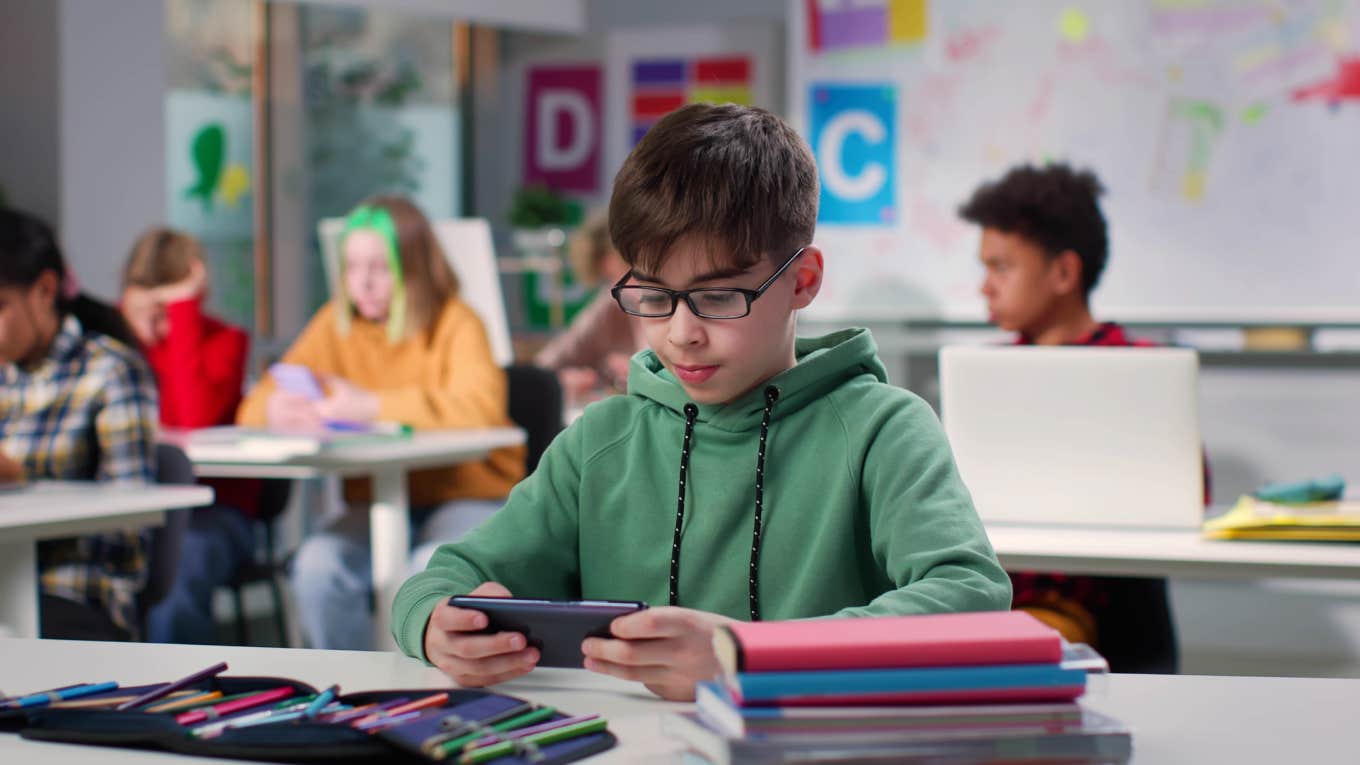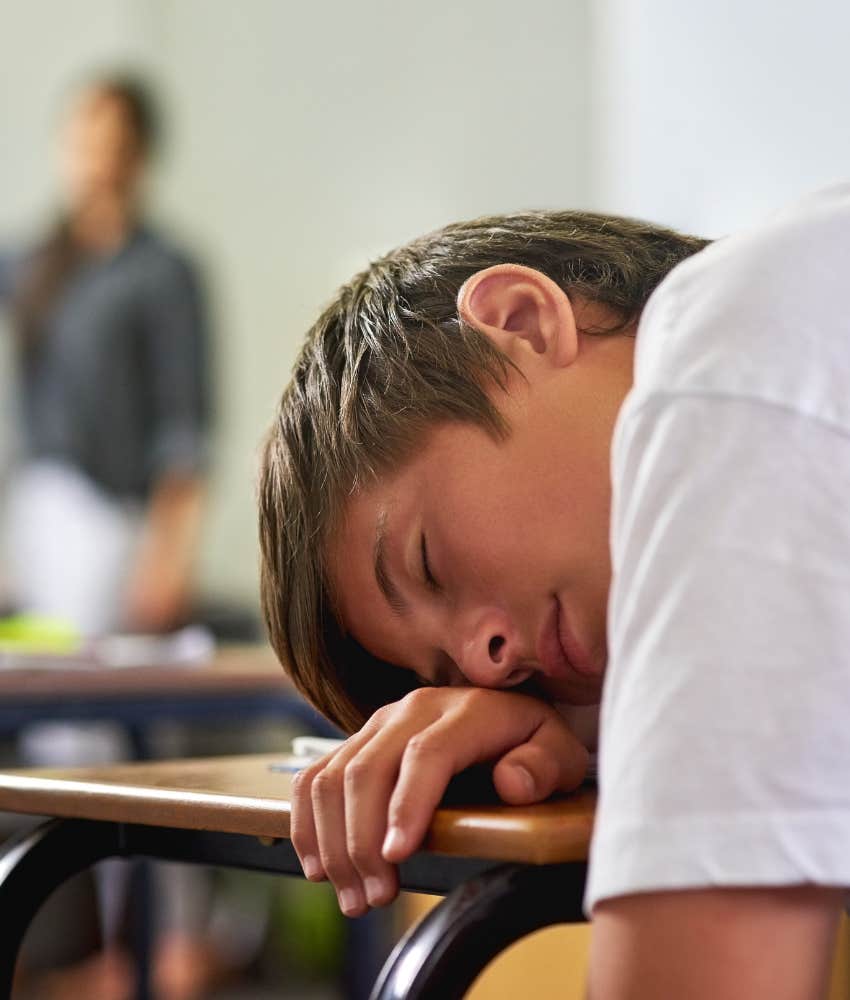Dad Tells Teacher To Take His Struggling Son’s Phone Away In Class But She Doesn’t Think It’s Her Place
She wants to avoid conflict with the student.
 nimito | Shutterstock
nimito | Shutterstock When it comes to having phones in the classroom, many teachers and school administrators have been extremely vocal about the detriment that devices can have to the flow of a learning environment. So much so that a growing number of schools have enforced strict no-phone policies for their students once they enter the building.
However, one teacher questioned if she should fall into the category of public school educators who've cracked down on their students having phones after a parent encouraged her to take his son's phone away to improve his schoolwork.
A struggling student's dad told her to take his phone away in class but she doesn't think it's her place.
In her Reddit post, she explained that she has a child in her class who hasn't been getting the best grades recently and is borderline failing because he's either on his phone or has his head down on the desk instead of paying attention and completing his assignments.
 PeopleImages.com - Yuri A | Shutterstock
PeopleImages.com - Yuri A | Shutterstock
The school doesn't have a strict cellphone policy at all and will allow students to walk into the building and be on their phones during the day without repercussions.
While the teacher said she doesn't receive much pushback from parents about their kids being on their phones in class, she was approached by this student's father, who encouraged her to take his phone away during class so that he could actually start paying attention.
"I appreciate the father wants his son to do the work and succeed, but I do not feel comfortable taking away a kid's phone, to be honest. I think at 15 the students should be able to decide for themselves to choose to do the work and out down the phone," she admitted.
"I understand I have the father's permission, but ultimately, I’m not sure I have any backing/support regarding policy. Also, I’m not sure how this student will react."
 Oksana Kuzmina | Shutterstock
Oksana Kuzmina | Shutterstock
Since the school doesn't have any strict cellphone policies, she's mindful that if she attempted to take the student's phone away, he could refuse and end up making a scene that she pointed out wasn't worth it to her.
She questioned how she could communicate to the dad respectfully and professionally that she's not required to take his son's phone away and doesn't want to try either.
 Freeograph | Shutterstock
Freeograph | Shutterstock
If the school doesn't have a phone policy set up, and she truly feels that attempting to take the student's phone away might result in an outburst or would make things worse, then she should be able to vocalize that to the parent.
She could suggest that he take matters into his own hands when it comes to his son's phone, whether that means taking it away himself or putting restrictions on the phone so that the teenager can't use it in class.
Teachers have admitted that excessive usage of phones in the classroom has become a distraction.
According to a June 2024 study by the Pew Research Center, high school teachers are especially likely to see cell phones as problematic. About seven-in-ten (72%) say that students being distracted by cellphones is a major problem in their classroom, compared with 33% of middle school teachers and 6% of elementary school teachers.
Several school districts have attempted to curb this issue by implementing certain policies, including requiring students to turn off their phones during class or giving them to administrators during the school day.
Overall, 82% of K-12 teachers in the U.S. say their school or district has a cellphone policy of some kind. Middle school teachers (94%) are especially likely to say this, followed by elementary (84%) and high school (71%) teachers.
With the schools that have implemented these policies, they've noticed a significant change in the way students are interacting with each other and how they're performing academically as well.
Educators claimed that violence such as bullying or fights stems from things students say to each other via text messages or social media. The no-phone policy discourages those behaviors, according to Education Week, which spoke to a few public school educators.
"In between classes, students are talking to students instead of everybody walking with their head down on their phone," Brush, Colorado Superintendent Bill Wilson said. "Teachers have made some of those same comments that they’ve had much more engaging conversations [with students]."
This teacher is well within her right to confiscate any student's phone, especially if it's proving to be a distraction and hindering their ability to pay attention and learn in the classroom.
However, it's understandable that she wouldn't want to put herself in a position where she could potentially have a conflict with a student and disrupt the flow of the classroom.
Nia Tipton is a Chicago-based entertainment, news, and lifestyle writer whose work delves into modern-day issues and experiences.

